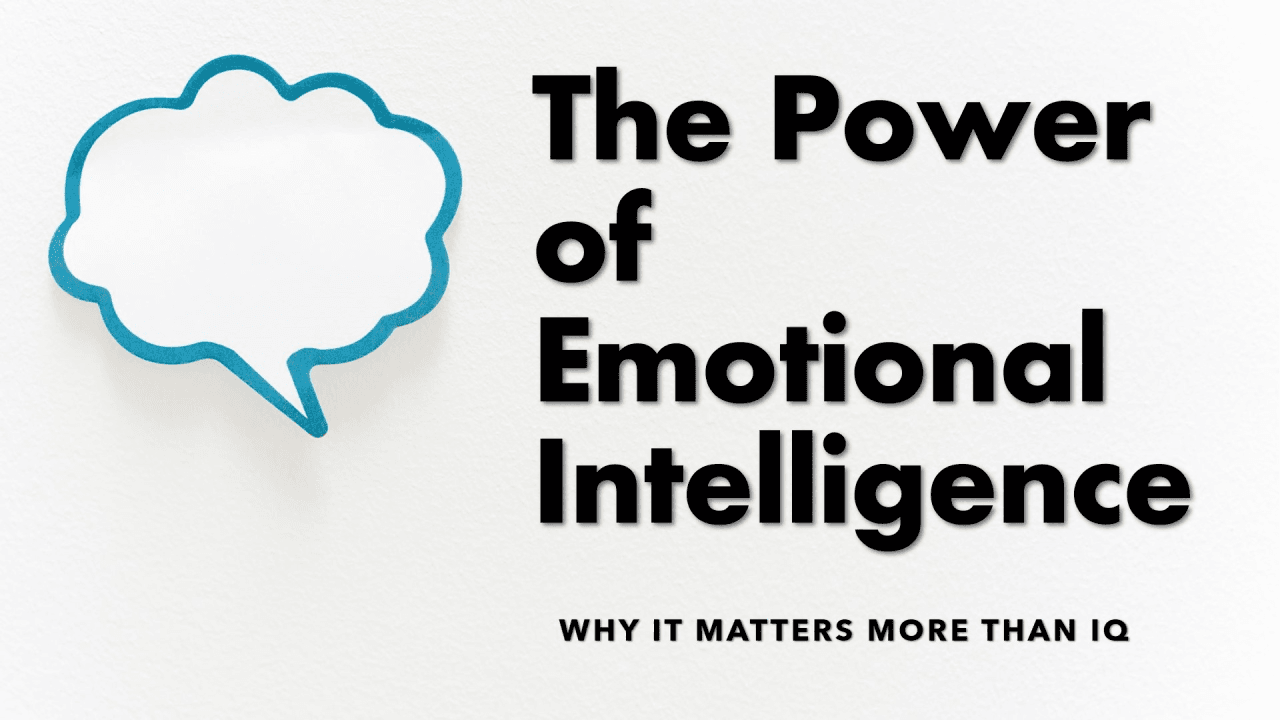

Emotional intelligence has emerged as a critical factor in personal and professional success, often surpassing the importance of traditional measures like IQ. Let’s explore this topic in more detail with Tic Tac Toe below to understand why emotional intelligence plays such a crucial role in our lives and how it can be developed to enhance our overall well-being and achievements.
Emotional intelligence, often referred to as EQ, is the ability to recognize, understand, and manage our own emotions, as well as the emotions of others. This skill set encompasses self-awareness, self-regulation, motivation, empathy, and social skills. Unlike IQ, which is largely determined by genetics and remains relatively stable throughout life, emotional intelligence can be developed and improved over time with conscious effort and practice.
The concept of emotional intelligence gained widespread popularity in the 1990s, thanks to psychologist Daniel Goleman’s groundbreaking work. Since then, numerous studies have demonstrated the significant impact of EQ on various aspects of life, including relationships, career success, mental health, and overall life satisfaction. As we delve deeper into the importance of emotional intelligence, it becomes clear why it has become such a crucial element in personal growth and professional development.
Read more: Journaling for Self-Awareness: Prompts to Start Today
Emotional intelligence plays a pivotal role in shaping our personal lives, influencing everything from our relationships to our mental well-being. Individuals with high EQ tend to have more fulfilling personal lives for several reasons:
People with high emotional intelligence are better equipped to navigate the complexities of human relationships. They possess a keen ability to understand and empathize with others’ feelings, which leads to more meaningful connections. These individuals are often skilled at active listening, conflict resolution, and providing emotional support, all of which contribute to stronger, more satisfying relationships with friends, family, and romantic partners.
Moreover, emotionally intelligent individuals are more adept at recognizing and addressing their own emotional needs, which allows them to maintain healthier boundaries and communicate more effectively in their relationships. This self-awareness and emotional regulation contribute to a more balanced and harmonious personal life.
High emotional intelligence is closely linked to better mental health outcomes and increased resilience in the face of life’s challenges. Those with well-developed EQ are more likely to:
. Effectively manage stress and anxiety
. Cope with setbacks and disappointments
. Maintain a positive outlook even in difficult situations
. Practice self-care and prioritize their emotional well-being
By understanding and regulating their emotions, individuals with high EQ are better equipped to navigate the ups and downs of life without becoming overwhelmed. This emotional resilience not only contributes to better mental health but also enables them to bounce back more quickly from adversity and maintain a sense of balance and well-being.
Emotional intelligence fosters a deep sense of self-awareness, which is crucial for personal growth and development. Individuals with high EQ are more in tune with their own emotions, values, and motivations, allowing them to make choices that align with their authentic selves. This self-awareness also enables them to:
. Identify areas for personal improvement
. Set meaningful goals and work towards them
. Develop a stronger sense of purpose and direction in life
. Cultivate a growth mindset and embrace lifelong learning
By understanding their own emotional landscape, these individuals are better positioned to make conscious choices that lead to personal fulfillment and continued growth throughout their lives.
While IQ has long been considered a primary predictor of career success, research has increasingly shown that emotional intelligence plays an equally, if not more, important role in professional achievement. Here’s how high EQ contributes to success in the workplace:
Leaders with high emotional intelligence are often more effective in guiding and inspiring their teams. They possess the ability to:
. Understand and address the emotional needs of their team members
. Create a positive and motivating work environment
. Resolve conflicts and build strong team dynamics
. Communicate effectively and foster open dialogue
These skills lead to increased team cohesion, higher levels of employee engagement, and improved overall performance. Emotionally intelligent leaders are also more adept at navigating complex organizational politics and building strategic relationships, which can be crucial for career advancement.
Emotional intelligence contributes significantly to better decision-making and problem-solving skills in the workplace. Individuals with high EQ are able to:
. Consider the emotional impact of their decisions on themselves and others
. Remain calm and focused under pressure
. Approach challenges with a balanced perspective
. Seek input from others and consider diverse viewpoints
These abilities lead to more thoughtful and effective decision-making, particularly in high-stakes situations or when dealing with complex interpersonal dynamics. Emotionally intelligent professionals are often better equipped to navigate the nuances of workplace challenges and find innovative solutions.
In today’s rapidly changing work environment, adaptability and resilience are crucial for long-term success. Emotional intelligence enhances these qualities by enabling individuals to:
. Manage stress and maintain composure during periods of change
. Embrace new challenges and opportunities with enthusiasm
. Recover quickly from setbacks and learn from failures
. Maintain a positive attitude in the face of adversity
This adaptability and resilience not only contribute to personal well-being but also make individuals more valuable assets to their organizations. Emotionally intelligent professionals are often better equipped to thrive in dynamic work environments and take on leadership roles during times of change.
While some individuals may naturally possess higher levels of emotional intelligence, it is a skill that can be developed and honed over time. Here are some strategies for improving your emotional intelligence:
Self-awareness is the foundation of emotional intelligence. To develop this crucial skill:
. Practice mindfulness and meditation to become more attuned to your thoughts and emotions
. Keep a journal to reflect on your experiences and emotional reactions
. Seek feedback from trusted friends, family, or colleagues about your behavior and emotional patterns
. Regularly assess your strengths, weaknesses, values, and goals
By developing a deeper understanding of your own emotional landscape, you’ll be better equipped to manage your emotions and relate to others more effectively.
Empathy and social skills are key components of emotional intelligence that can be improved through practice:
. Actively listen to others without judgment or interruption
. Practice putting yourself in others’ shoes to understand their perspectives
. Observe non-verbal cues and body language to gain insight into others’ emotions
. Engage in activities that expose you to diverse perspectives and experiences
By honing these skills, you’ll be better able to connect with others, build stronger relationships, and navigate complex social situations with ease.
Learning to regulate your emotions is crucial for maintaining balance and responding appropriately to challenging situations:
. Practice stress-management techniques such as deep breathing, progressive muscle relaxation, or visualization
. Develop healthy coping mechanisms for dealing with difficult emotions
. Learn to recognize and challenge negative thought patterns
. Create a toolkit of strategies for managing intense emotions in the moment
By mastering emotional regulation, you’ll be better equipped to handle stress, maintain composure under pressure, and make rational decisions even in emotionally charged situations.
Read more: Gratitude Practices That Can Improve Your Mood Instantly
Continuous learning and self-improvement are essential for developing emotional intelligence:
. Read books and articles on emotional intelligence and personal development
. Attend workshops or seminars focused on EQ and interpersonal skills
. Seek out mentors who exemplify high emotional intelligence
. Practice applying EQ skills in various aspects of your personal and professional life
By consistently seeking opportunities to grow and learn, you’ll be able to refine your emotional intelligence skills and adapt to new challenges more effectively.
In conclusion, emotional intelligence plays a crucial role in both personal and professional success, often surpassing the importance of IQ. By developing self-awareness, empathy, emotional regulation, and social skills, individuals can enhance their relationships, improve their mental health, and achieve greater success in their careers. As we continue to navigate an increasingly complex and interconnected world, the ability to understand and manage emotions – both our own and others’ – will become even more valuable. By prioritizing the development of emotional intelligence, we can unlock our full potential and lead more fulfilling, balanced, and successful lives.